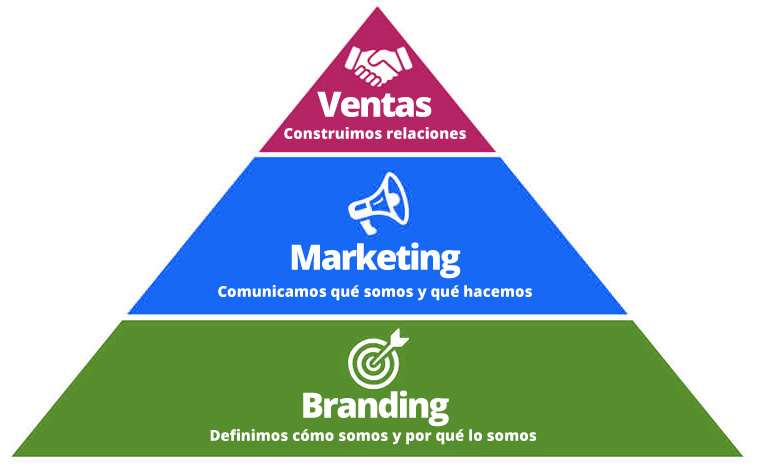Why Durable Branding Is Vital for Market Management
In today's competitive landscape, robust branding becomes an essential component for attaining market management. A distinct brand identification not only establishes a firm apart from its opponents but likewise grows depend on and emotional connections with consumers. These elements are necessary for promoting loyalty and motivating repeat service, yet several companies overlook the much deeper ramifications of their branding approaches. As we check out the multifaceted nature of branding, it ends up being apparent that the stakes are high for those that stop working to identify its value in forming lasting organization success. What are the specific techniques that can elevate a brand to this prestigious standing?
Understanding Brand Identity
Regularly recognizing the value of brand name identity is vital for any type of organization desiring attain market leadership. Brand name identity includes the visual components, messaging, and general perception that differentiate a company from its rivals. It functions as a foundation for how consumers perceive and engage with a brand name, playing an important duty fit their experiences and assumptions.
A distinct brand identification interacts the core worths and mission of an organization, developing a psychological link with its target audience. Components such as logo designs, color design, typography, and tone of voice must straighten cohesively to convey a constant message across all systems. This consistency enhances brand acknowledgment and cultivates client commitment.
In addition, brand identification is not merely shallow; it mirrors the credibility and honesty of a firm. It ought to be very carefully crafted to reverberate with the intended target market while staying adaptable to advancing market patterns. Organizations that focus on a strong brand identification can effectively separate themselves, construct a positive track record, and cultivate a dedicated customer base. Eventually, a durable brand name identification is important for navigating competitive landscapes and maintaining long-term success.
Structure Consumer Trust
A strong brand name identity lays the groundwork for constructing consumer trust fund, an essential element in achieving market leadership. Trust fund is not simply a psychological response; it is a tactical property that can substantially influence acquiring decisions and brand commitment. Companies that cultivate transparency, dependability, and consistency in their messaging and activities promote a complacency amongst customers.
To build this depend on, brand names should supply on their guarantees. This suggests making sure that item high quality fulfills customer expectations which solution experiences are positive and responsive. Constant communication reinforces dependability; when customers recognize what to anticipate and that their concerns will be addressed, their confidence in the brand name deepens.
Social evidence likewise plays a vital role in developing trust. Favorable testimonials, endorsements, and recommendations from trustworthy resources improve a brand name's track record and can guide potential consumers. Moreover, engaging with customers via social platforms and addressing their issues openly demonstrates responsibility and commitment.
Differentiation in Open Markets
In today's congested marketplace, distinction is crucial for brand names seeking to stand out and capture customer focus. With countless options offered, consumers are frequently overloaded, making it vital for brands to develop a distinct identification that resonates with their target audience. This differentiation can show up through numerous aspects, consisting of product attributes, prices approaches, consumer service, and brand name messaging.
Effective distinction entails not only determining what makes a brand name special yet likewise communicating these differences clearly and consistently. Brands should articulate their worth recommendation in a manner that addresses details customer requirements and choices. A firm might focus on sustainability, ingenious modern technology, or customized customer experiences to sculpt out a niche in an affordable landscape.
Moreover, brands should continually analyze their affordable environment to adapt and refine their differentiation methods. This aggressive approach guarantees that they stay attractive and appropriate to customers as market characteristics progress. Ultimately, robust branding that stresses differentiation not only promotes brand name loyalty but likewise positions a company as a leader in its sector, paving the way for sustained growth and market dominance.
Emotional Links With Consumers
Emotional connections offer as an effective catalyst in building long lasting relationships in between consumers and brand names. It cultivates commitment that goes beyond mere transactional communications when consumers reverberate with a brand on an emotional degree. Brands that effectively stimulate emotions-- whether via storytelling, shared worths, or authentic involvement-- develop a sense of belonging for their customers.
These emotional ties can dramatically affect purchasing choices, as consumers are usually driven by feelings rather than logic. A brand that straightens with customers' addresses or aspirations their discomfort factors can cultivate a deep-seated commitment that causes repeat service and positive word-of-mouth references.
In addition, psychological branding allows companies to distinguish themselves in congested markets. By tapping right into the views of their try these out target audience, brands can take a special identification that resonates deeply, making them unforgettable and preferred over rivals.
In an age where consumers are pestered with choices, a solid emotional connection can be the deciding factor in brand name choice. Therefore, prioritizing psychological involvement is not simply a marketing technique; it is a tactical essential for brand names seeking to develop purposeful connections and enhance consumer retention.
Long-Term Service Success
Sustainable company development rests on the ability to cultivate robust branding techniques that resonate with customers gradually. A solid brand name not just differentiates a firm from its competitors yet also fosters commitment and trust fund amongst consumers. This long-lasting connection is crucial for making certain repeat organization, which considerably contributes to profits security and growth.
In an increasingly competitive marketplace, brand names that connect a clear and constant message are more probable to prosper. This uniformity reinforces brand name identification, making it less complicated for customers to choose the brand and remember over others. Robust Branding. Consequently, a well-established brand name can adapt to market modifications without shedding its core essence, permitting technology without pushing away faithful customers
Additionally, durable branding creates a system for client interaction, wherein businesses can gather responses and adapt their offerings appropriately. This repetitive procedure blog not only improves consumer satisfaction but likewise constructs a neighborhood around the brand, promoting a sense of belonging.
Verdict

Organizations that focus on a solid brand name identity can effectively differentiate themselves, build a positive track record, and cultivate a dedicated client base.A strong brand identity lays the groundwork for constructing consumer trust fund, a key element in accomplishing market management. A solid brand name not just separates a company from its competitors but likewise cultivates commitment and trust fund amongst clients. As an outcome, a reputable brand can adjust to market changes without shedding its core essence, permitting for technology without alienating dedicated consumers.

Comments on “The Future of Company Growth: Accepting Robust Branding in Your Method”